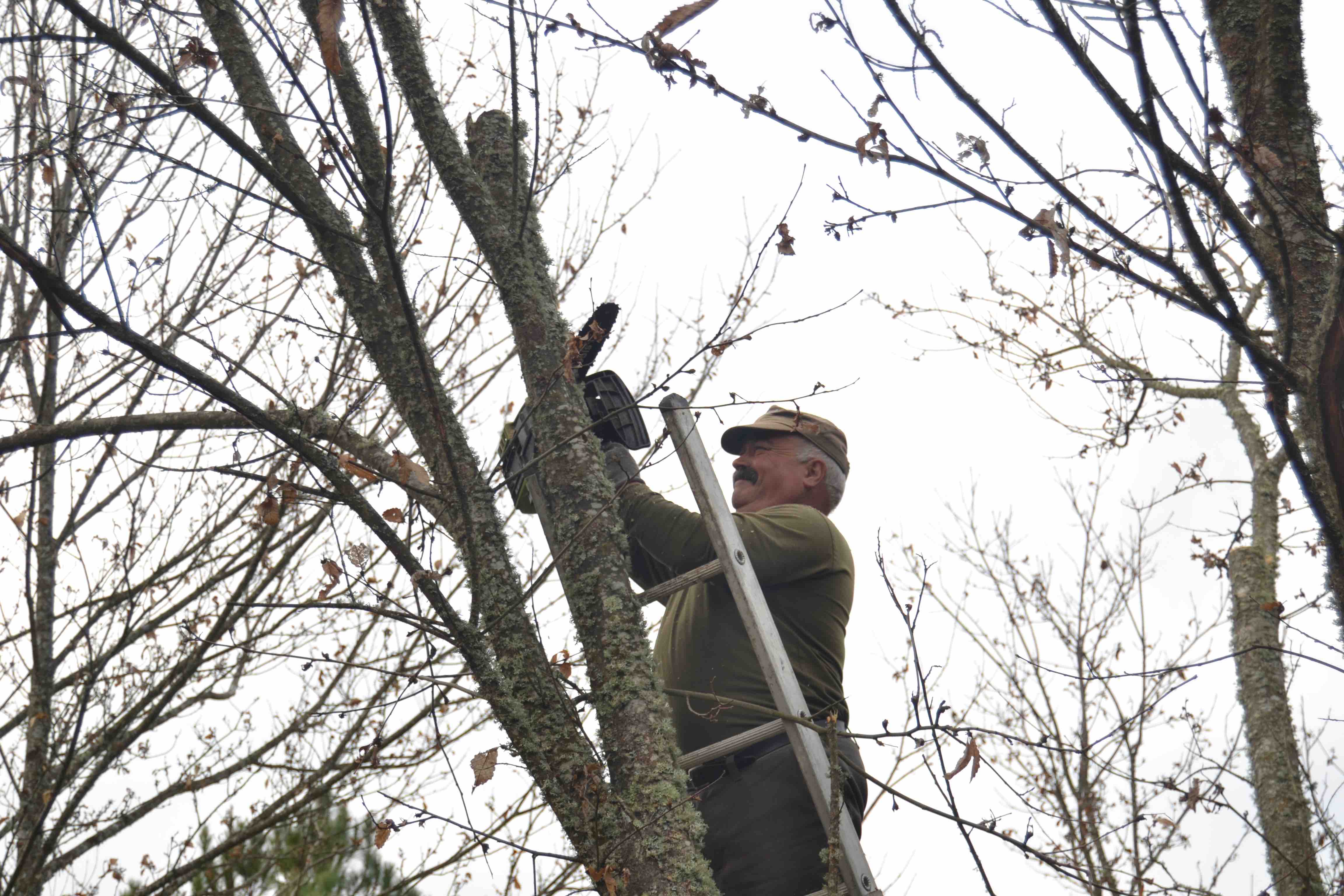At Vale das Lobas, in the area above the village of Sobral Pichorro, there is an incredible forest of tall, thin trees, with light-brown trunks covered in green, fluffy lichen, whose floor is now covered in a bed of leaves representing autumn hues. They are chestnut trees, and at the end of 2020, they provided some nice and delicious kilos of chestnuts. In the future, we will have a processing station to make chestnut flour and enjoy all of them, all year round.
This chestnut forest burned in 2017, but it is recovering with impressive speed and vitality. To help in this recovery and in the maintenance of the forest, we have a team in loco for a couple of months, headed by Sr. Carlos. These gentlemen are forest sappers, and they do one of the most important jobs in terms of nature management in Portugal – the cleaning of forest, bush, roadsides… To improve the quality of the flora in these areas and to prevent fires. They are also the ones who stand watch during the summer, sounding the fire alarm, but we all know that we’re better safe than sorry.
The other day I went up to the chestnut forest, past the Seminário which is the future Nature Spa, and spoke to Sr. Carlos during his break. He is a short man with a build that shows strength and experience, perfect for climbing trees with heavy machinery in hand. He has a small, honest, eye-creasing smile, under a neat moustache. He is local to the municipality, and has worked with wood for decades. “When we started working… we didn’t know as much as we know today. With time, by working, we learn”.
Looking curiously around the forest, where I can see a fair amount of cut branches and sprouts around the beautiful trees, I ask myself, and then Sr. Carlos, how he knows which branches and sprouts to cut, and what is the function of tree pruning, actually. Although I’ve see pruned trees, and trees being pruned, since I was small, mainly olive trees in Alentejo, I realise that I don’t know details about this process. One thing I know: the small red circles in the trunks or branches indicate which ones will be pruned.
“If you have a tree, and if you let it be, she will grow, grow, grow, adrift. It’s like us when we are born, if our parents don’t educate us, we don’t learn anything. Trees are the same. You have to prune so they will renew themselves, otherwise they will grow, grow and die. If there is no pruning, the trees grow old. But there’s also types of trees. The pine, the oak, they don’t need pruning. Olive trees, fruit trees, they need to be pruned to give better fruits. You have to take what is ill, old, to let the new sprout.” These chestnut trees also have a quite wide length between them, which gives a spacious look to this part of the forest. “It’s like people: if you’re alone, you can open your arms, but if we are stuck together, we cannot open our arms.”
As sappers, Sr. Carlos and his team work for the State but also for the private sector. “We are available to whoever calls us, we do all kinds of services… Here at Vale das Lobas… I don’t know if it’s the fifth or sixth time that we are here. Already since 2015.” And it’s true that Tony, project director, has nothing but good things to say about this team and their work from the last years.
“When I started cleaning this chestnut forest… you couldn’t see any ground, it was just brambles and broom shrubs… Then we got cleaning, cleaning, and here we’ve been. It’s because they like our work.” Very good work indeed, for between the trees I see a clean, beautiful ground covered in leaves and chestnuts hedgehogs.
“We do all this, this whole part, the olive trees down there. We’re practically sons of this house… And we’ve also take pride in the work we do.” And do Sr. Carlos and his team like Vale das Lobas back? “Yes, they are good folk.” Here his smile strands out from under his moustache. I can see that, besides enjoying his work very much, Sr. Carlos likes to work in this valley and in this project.
Sr. Carlos then asks me where I come from. I tell him I come from Lisbon and, just like all the locals who ask me, he is surprised to see a lisboeta living in the mountain, working in the village. I tell him that that is exactly what I was looking for, even knowing that it is a very different kind of life. “[The countryside] is healthier, but most people in the city don’t know what the countryside is. Some years ago here was better, because most people lived off the land, the land gave more. Today it gives nothing, you farm, but you cannot sell it, handywork is too expensive, so you need to really like this to be around here….. I don’t remember it… but before, this was all done by hand. It created jobs for a lot of people… and people came here [to the forest] to eat. But this will never be what it used to be.”
We then reflect together on how much things have changed in only a short time. Sr. Carlos goes further: “Now, with this pandemic, it won’t be so easy, for them or anyone else. This is a big investment. Is it becoming really beautiful. And is it creating a lot of jobs for a lot of people. It’s good for the village, it’s good for the municipality, it’s good for everyone. It’s not very easy in the times we are in, but let’s see what happens. We hope so, that it has success. Right?”
Let’s hope that this summer we will be able to enjoy this treasure that we have so close by, in the mountains of Serra da Estrela.
It is around this time that I thank Sr. Carlos so much for taking the time to talk to me, and ask him if I can take his picture. He gets really pleased, especially due to the fact that I came up the mountain just to chitchat with him. I came away feeling so pleased that I have this job, and that I can be in this place every day, particularly at a time like this.
“You need to really like this to be around here”, he had said. I couldn’t agree more.

Vale das Lobas is leading towards sustainable life on Earth.
Subscribe to our newsletter and follow us on social media,
so you’l know firsthand of all our activities, updates and ideas!







